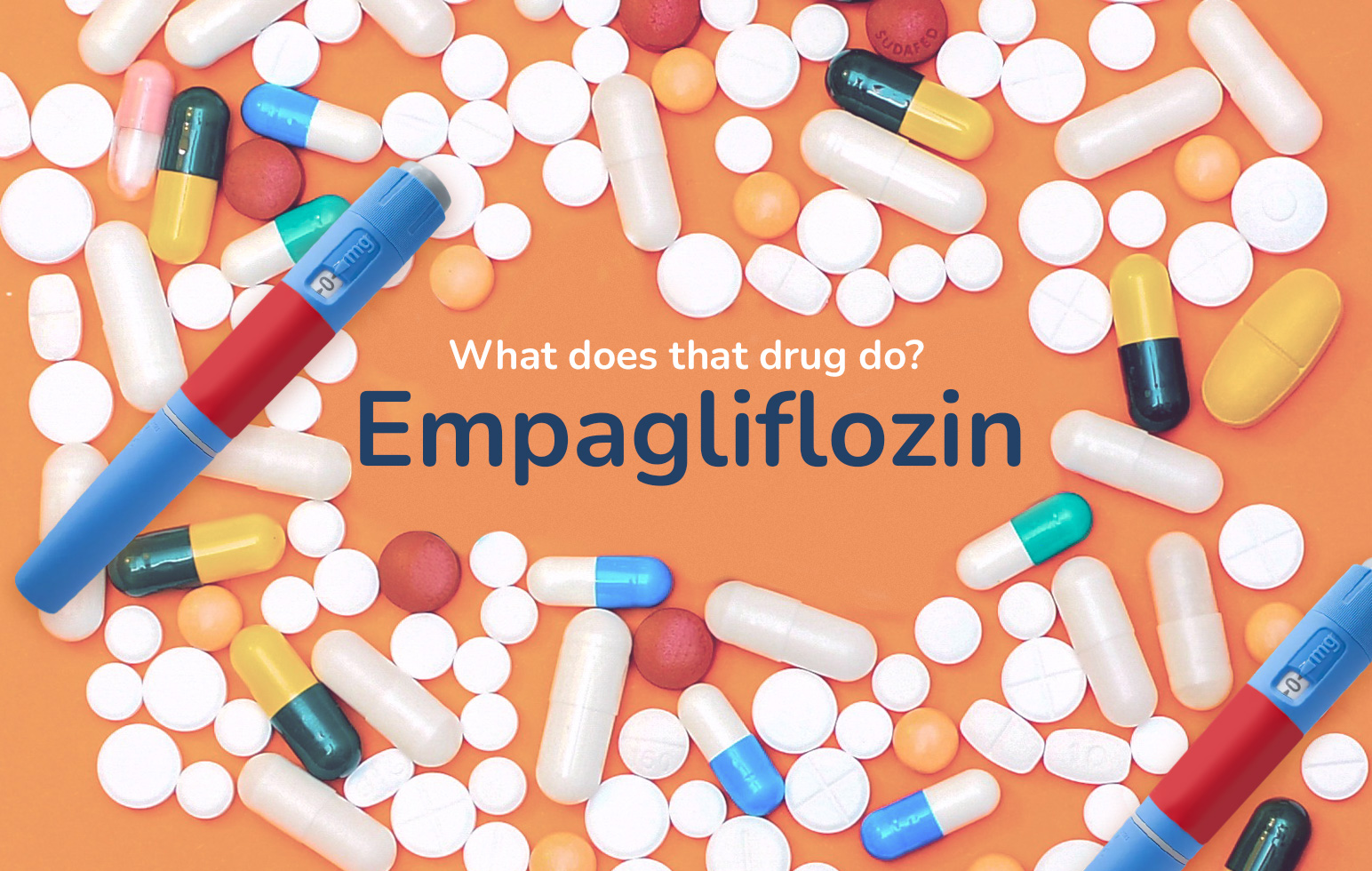Possible doses: Empagliflozin is a glucose-lowering pill that is typically taken once or twice daily by people with type 2 diabetes. The total daily dose is either 10 or 25 mg.
What it does: In addition to lowering glucose levels, randomized control trials have clearly shown that it helps to protect the kidney from damage and reduces the occurrence of heart failure, heart attacks and death from heart disease.
How it works: Empagliflozin lowers glucose by acting on the kidney, where it increases the amount of glucose that passes into the urine. Normally the kidney absorbs all the glucose from the urine. This drug reduces that absorption, so that glucose is lost in the urine along with some extra water. The drug also may cause modest weight loss and a small decrease in blood pressure. Exactly how empagliflozin reduces kidney disease, heart disease, and death is not clearly understood.
Side effects: Most people have no side effects. Because it increases glucose levels in the urine, it can sometimes promote a rash in the groin area caused by a yeast infection. This affects about 1 in 10 women and 1 in 20 men and is easily treated with the appropriate anti-yeast or anti-fungal creams. It is important to note that if someone develops an illness that causes vomiting or diarrhea and could lead to dehydration, they should refrain from taking empagliflozin until they recover. This is because the empagliflozin could worsen dehydration in someone who can’t keep fluids in for another reason. Rarely (in less than 1 out of 1000) that could lead to a serious condition called ketoacidosis. Because ketoacidosis is much more common in type 1 diabetes, empagliflozin is not approved for people with type 1 diabetes.
Bottom line: Empagliflozin is a safe and effective treatment for diabetes that also reduces kidney and heart disease. Indeed, it is now used in people without diabetes to reduce kidney and heart disease as well.



